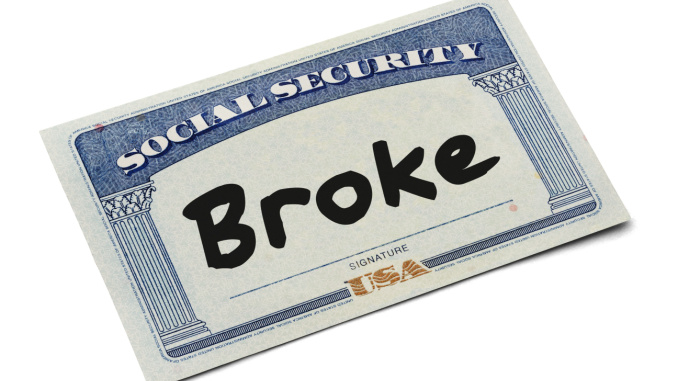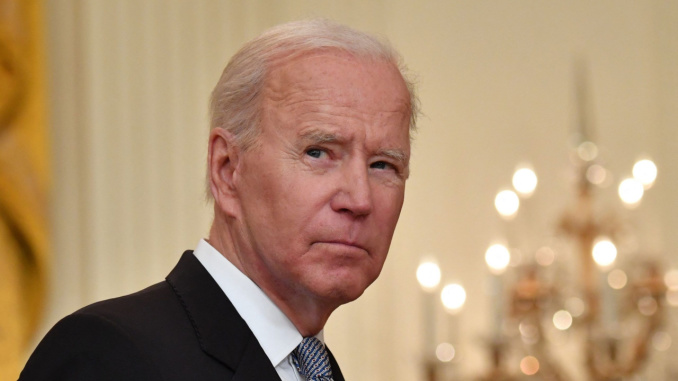
by Daniel Stefanski | May 31, 2024 | Economy, News
By Daniel Stefanski |
Two Arizona Republican bills to tackle the state’s deepening housing crisis were recently signed into law.
Last week, Governor Katie Hobbs signed HB 2720 and HB 2721. HB 2720 “establishes requirements relating to accessory dwelling units” – according to the overview from the Arizona House of Representatives. HB 2721 “adopts requirements for middle housing development” – also according to the overview from the state House.
In a statement that followed the governor’s signature of his bills, State Representative Michael Carbone, a Republican, wrote, “It’s the goal of Republicans in the Legislature to make life more affordable for everyday Arizonans by addressing the urgent need for more diverse housing options. I’m pleased to have the Governor sign my two bills into law, which will help mitigate the effects of rising housing costs and ensure that our teachers, nurses, firefighters, police officers, and families can live in the communities they serve and love.”
Carbone added, “Importantly, the legislation reinforces a homeowner’s right to use their property as they see fit which, for some, may include adding accommodations for multigenerational housing or to generate additional income. The enactment of this legislation is a significant step toward solving the state’s housing crisis, and I am proud of the bipartisan effort that made it possible.”
Hobbs also released a statement to mark her signature on these two proposals, saying, “I’m glad the legislature heard my calls to come to the table to pass common sense, bipartisan legislation that will expand housing options and help mitigate the effects of rising costs to make life more affordable for everyday Arizonans. And today, I’m proud to sign bills into law that will expand access to ADUs and missing middle housing.”
The governor continued, “I was born and raised in an Arizona where a middle-class family could buy their own home. In the past year alone we have made dramatic strides towards making that the reality again for the next generation. …Moving forward, I hope we can work together to address short term rentals that displace long-term community residents, and crack down on speculation by out-of-state real estate investors that drives up the cost of housing for Arizonans.”
Both bills will go into effect 90 days after the conclusion of the 2024 Arizona Legislative Session.
Daniel Stefanski is a reporter for AZ Free News. You can send him news tips using this link.

by Elizabeth Troutman | May 22, 2024 | Economy, News
By Elizabeth Troutman |
Fast food prices have skyrocketed during the Biden administration, according to a graph shared on X by the account End Wokeness.
Prices as measured by the seasonally adjusted Consumer Price Index are now up by almost 20% in the years since President Joe Biden took office.
The prices of five of McDonald’s most popular items — french fries, a cheeseburger, 10 McNuggets, the Big Mac, and the McChicken — on average have increased by more than 140% from the end of 2019, when Donald Trump was president, to this year.
An order of medium french fries cost $1.79 when Trump was president but now costs $4.19. The McChicken increased from $1.29 to $3.89. The cheeseburger went from costing $1.00 to $3.15, a 215% increase.
Taco Bell’s popular items have on average increased by 57.4%, with the beefy five layer burrito increasing in price from $1.69 in 2019 to $3.69 in mid-2024, a 118% increase.
At Chick-fil-A, the average price across the Deluxe Chicken Sandwich, eight nuggets, four chicken strips, medium waffle fries, and a large milkshake increased by 80.1%.
The eight-piece chicken nugget, which once cost customers only $3.05, now costs just short of six dollars. The medium waffle fries increased from $1.65 to $2.99.
Biden has acknowledged the increases consumers have faced in prices during his presidency.
“Inflation has fallen more than 60% from its peak, and core inflation fell to its lowest level in three years,” he said, acknowledging that “prices are still too high” and reiterating that fighting inflation is his “top economic priority.”
The typical U.S. household needed to pay $227 more a month in March to purchase the same goods and services it did one year ago because of inflation. Americans are paying on average $784 more each month compared with the same time two years ago and $1,069 more compared with three years ago.
Elizabeth Troutman is a reporter for AZ Free News. You can send her news tips using this link.

by Elizabeth Troutman | May 16, 2024 | Economy, News
By Elizabeth Troutman |
Arizona Republican Rep. David Schweikert urged Americans to take “our fiscal responsibility” seriously in light of the Social Security Administration’s 2024 Trustees Report.
“I implore my brothers and sisters to take our fiscal responsibility seriously before it’s too late,” Schweikert said.
Schweikert, who serves as Joint Economic Committee vice chairman, issued a statement on the report, which projected that the Old-Age and Survivors Insurance (OASI) Trust Fund will become insolvent by 2033.
“The Social Security Trustees Report confirms that it’s no longer just future generations who should be concerned about receiving their full earned benefits but rather current retirees too,” Schweikert said
The congressman criticized Congress for failing to protect the entitlement programs millions of Americans depend on.
“As our nation’s fiscal health continues to deteriorate, Congress refuses to live up to its moral obligation to protect and modernize Social Security and Medicare,” he said. “It’s past time for the political class to put aside their talking points and start working on bipartisan solutions to save these programs for our seniors.”
According to the report, the Old-Age and Survivors Insurance Trust Fund is projected to become exhausted by 2033. Once the OASI Trust Fund goes insolvent, all beneficiaries will face an across-the-board 21% cut to retirement benefits.
The Disability Insurance (DI) Trust Fund will be able to keep paying full benefits through at least 2098. But the combined OASI and DI Trust Funds will become depleted by 2035.
Once the combined OASDI trust funds go insolvent, all beneficiaries will face an across-the-board 17% cut to retirement benefits.
The Hospital Insurance (HI) Trust Fund will become insolvent by 2036. At that point, the HI Trust Fund will only be able to cover 89% of total benefits.
The combined Social Security programs will run a cash-flow deficit of $169 billion this year and $2.7 trillion over the next decade.
Elizabeth Troutman is a reporter for AZ Free News. You can send her news tips using this link.

by Daniel Stefanski | May 11, 2024 | Economy, News
By Daniel Stefanski |
One Arizona Republican lawmaker is speaking out against Democrats’ economic policies.
Senate President Pro Tempore T.J. Shope recently addressed the economic pains being felt by his constituents – as well as many Arizonans around the state. He singled out President Joe Biden and attributed the support of Democrat state legislators for aiding in the economic ailments of everyday Americans.
Shope wrote, “Reckless policies implemented by Joe Biden and supported by Democrat lawmakers have caused the inflation nightmare currently costing you more of your hard earned dollars. Americans are now paying nearly $1,100 more each month compared with just three years ago. If you were hoping to buy a house soon, don’t expect relief in the near future, as 30- year mortgage rates are sitting above 7%, the highest level in 20 years, and the feds indicated this week they may not cut rates in 2024 while inflation remains high.”
The state senator added, “Gas prices are surpassing $4 per gallon in Arizona, when they were just $2.50 at this time four years ago. Our citizens are spending 11% of their disposable income on food, which is the highest level in more than three decades. More and more working class citizens are relying on credit cards to cope with rising costs, as one in three consumers are currently maxing them out. Senate Republicans remain focused on easing these financial burdens, despite the out of touch priorities Biden, Hobbs, and Democrat lawmakers are pushing.”
A recent Gallup Economy and Personal Finance Poll showed that only 38% of respondents had “a great deal” or “a fair amount” of President Biden “to do or recommend the right thing for the economy.” This approval rating (or lack thereof) for Biden has plummeted since the start of his presidency in 2021, when he began his term at 57% for this specific question. Just 34% of independents have confidence in the 46th President’s ability to turn the economy around, according to the poll.
During a recent campaign appearance, former President Donald J. Trump again reiterated that he would reignite the American economy if voters entrusted him with the keys to 1600 Pennsylvania Avenue. He said, “Upon taking office, I will impose an immediate moratorium on all new spending, grants, and giveaways under Joe Biden’s mammoth socialist bills like the so-called Inflation Reduction Act. We are going to stop the Biden spending spree. We are going to halt his inflation death spiral. We are going to terminate his Green New Scam. We are going to end his war on American energy. And we are going to drill, baby, drill.”
Daniel Stefanski is a reporter for AZ Free News. You can send him news tips using this link.

by Elizabeth Troutman | Apr 22, 2024 | Economy, News
By Elizabeth Troutman |
Arizona is the state with the third best economic climate, according to a new report from the American Legislative Exchange Council (ALEC).
“Arizona’s high ranking is a direct result of significant pro-growth income and property tax reform that has supercharged our economy,” President of the Arizona Free Enterprise Club Scot Mussi told AZ Free News. “In the last decade we have slashed our income tax rates in half, cut taxes on capital gains, and significantly reduced the property tax burden on small businesses.”
Utah and Idaho surpassed the Grand Canyon state for best economic climates. New York, Vermont, and Illinois placed in the bottom three.
Arizona has moved up from 13th place in 2021 to third in 2024. Arizona’s population increased by 115,900 from July 1, 2022, to July 1, 2023, estimates from the Arizona Office of Economic Opportunity show. This translated into 1.6% growth, much faster than the U.S. at 0.5%.
Arizona ranks third for tax expenditure limits, first for being a right-to-work state with the option to join or support a union, first for estate/inheritance tax levied, and first for remaining tax burden.
It also ranked second for public employees per 10,000 of population and eighth for average worker compensation cost.
Mussi said Arizona is on track to continue its route of economic growth.
“As long as we keep these reforms in place, Arizona will remain a destination for both families and entrepreneurs,” he said.
Elizabeth Troutman is a reporter for AZ Free News. You can send her news tips using this link.

by Elizabeth Troutman | Apr 21, 2024 | Economy, News
By Elizabeth Troutman |
Seven in 10 workers don’t wanna work from home, according to a ResumeBuilder.com survey of 1,250 full-time workers.
While 70% don’t want to be fully remote, 40% want to be fully in-person, and 32% prefer hybrid work. Employees cited communication and collaboration as the top reasons why employees want in-person work.
“With the tug-and-pull surrounding remote and hybrid work, the voices of those advocating for full-time in-office work have not always received equal attention,” Resume Builder’s Chief Career Advisor Stacie Haller said.
The majority of those who want hybrid work want three days in-office. Thirteen percent of those would like to work four days in-person, 41% say three days per week is ideal, and 27% prefer two days in person. Ten percent would like to work one day per week in office, and 9% prefer one to three days per month.
“While the desire for some in-office presence remains prevalent, the extent of this preference remains subject to flux,” Haller said. “It’s clear that a one-size-fits-all approach is no longer tenable in today’s diverse workforce landscape. Yet, the specific configuration of in-office versus remote work versus hybrid continues to be a matter of ongoing negotiation and adaptation.”
Out of those who prefer remote work, 87% prefer work from home, while 9% would rather be in a hybrid environment, and 4% prefer in-person options.
Of hybrid employees, 68% prefer hybrid work, while 27% would like to work remotely, and 5% would rather be in-person. Of fully in-person employees, 58% prefer in-person work, while 24% would rather work in a hybrid model, and 18% would prefer remote work.
Haller said she is convinced the hybrid model will emerge as the predominant choice of most workers.
“This approach accommodates the diverse needs and preferences of both employees and employers, fostering a more flexible and resilient work environment capable of meeting the challenges of the modern era and the need for more workers to achieve a work-life balance,” Haller said.
Elizabeth Troutman is a reporter for AZ Free News. You can send her news tips using this link.






